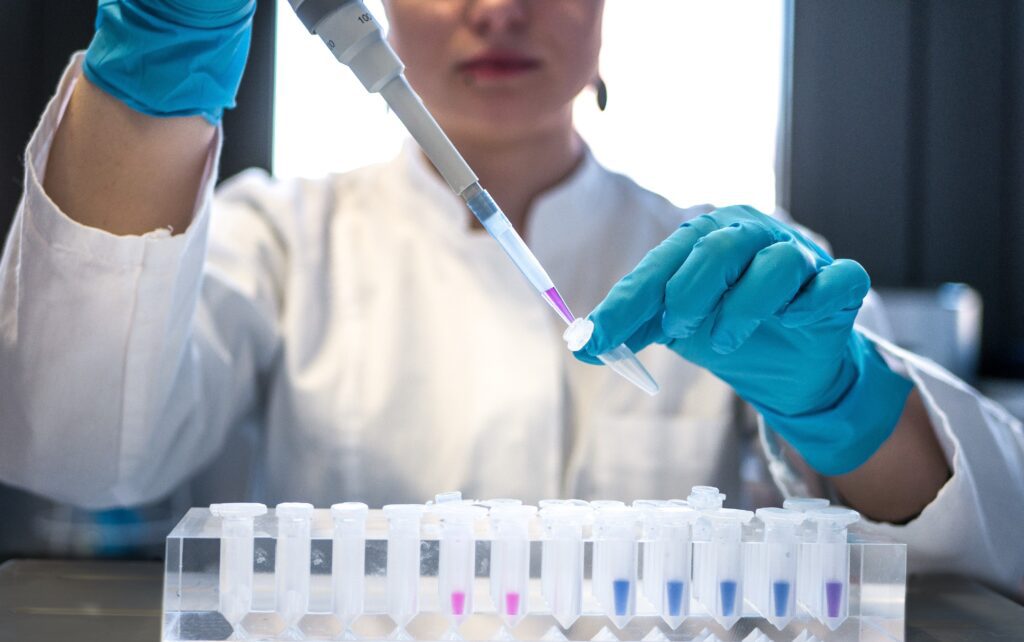
The Importance of Routine Lab Tests: A Guide for North Carolina
Routine lab tests are a cornerstone of proactive healthcare management, playing a crucial role in monitoring your health and preventing potential issues. In North Carolina, as in any other state, staying on top of your health through regular lab tests is essential. In this guide, we will explore the significance of routine lab tests and how they contribute to proactive healthcare management for North Carolinians.

Why Are Routine Lab Tests Important?
Routine lab tests are essential for several reasons:
Early Detection of Health Issues: Many health conditions, such as diabetes, high cholesterol, and certain cancers, may not show symptoms in their early stages. Routine lab tests can detect abnormalities before they develop into serious problems.
Preventative Care: Lab tests help healthcare providers assess your risk factors and make recommendations for lifestyle changes or treatments that can prevent future health issues.

Baseline for Comparison: By establishing baseline values for various health markers, routine lab tests allow healthcare providers to track changes over time. This helps identify trends and address any deviations from normal values promptly.
Personalized Healthcare: Lab test results provide valuable information about your unique health profile, enabling healthcare providers to tailor their recommendations and treatments to your specific needs.
Common Routine Lab Tests
Several routine lab tests are commonly performed during preventive healthcare visits, such as:
Complete Blood Count (CBC): This test measures red blood cells, white blood cells, and platelets, providing insights into your overall health and potential infections or anemia.
Cholesterol Panel: This panel assesses your cholesterol levels, including LDL (bad) and HDL (good) cholesterol, helping to evaluate your risk of heart disease.
Blood Glucose Test: This test measures your blood sugar levels and is crucial for diagnosing and managing diabetes.

Liver Function Tests: These tests assess liver health by measuring enzymes and proteins in the blood. Abnormal results can indicate liver disease.
Kidney Function Tests: Kidney function is assessed through tests that measure creatinine and blood urea nitrogen levels.
Thyroid Function Tests: These tests evaluate the thyroid gland’s hormone production and function, which can impact metabolism and overall health.
Cancer Screening: Depending on age, gender, and risk factors, routine lab tests such as mammograms, Pap smears, and prostate-specific antigen (PSA) tests may be recommended for early cancer detection.
The Role of Proactive Healthcare in North Carolina
North Carolinians can benefit significantly from proactive healthcare that includes regular lab tests. By being proactive, individuals can identify potential health issues early, leading to more effective and less costly treatments. Moreover, proactive healthcare promotes a culture of overall wellness within the community.
Conclusion
Routine lab tests are a vital component of proactive healthcare management in North Carolina. They provide essential insights into your health, aid in early detection of issues, and enable personalized healthcare recommendations. By making routine lab testing a part of your healthcare regimen, you take a proactive step toward better health and well-being. Consult with your healthcare provider to determine which routine lab tests are appropriate for your age, gender, and risk factors, and make them a regular part of your healthcare routine.
Furthermore, explore our comprehensive lab testing services with the flexibility of walk-in and same-day appointments, all while accepting all health insurances. Your health, our priority – schedule your test for quick and convenient access to the care you deserve.
Resources:
U.S. Department of Health and Human Services. (2022, March 24). Blood tests. National Heart Lung and Blood Institute. https://www.nhlbi.nih.gov/health/blood-tests
